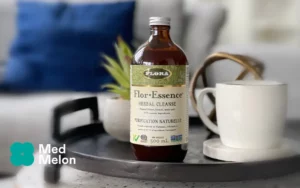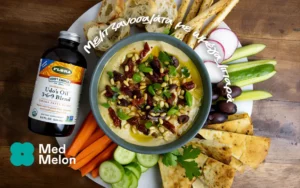Scientific Names of Noni Juice: Morinda citrifolia L. [Fam. Rubiaceae]
Forms:
Juice from the fruit of Morinda citrifolia L.
Traditional Usage:
– Antioxidant
– Cellular Regeneration
– Chronic Degenerative Conditions
– Cleansing
– Detoxification
– Heart Health Maintenance
– Immune System
– Inflammation
– Nutritive
– Poultice
– Skin Disorders
– Sugar Control
– Tonic
– Vascular Disorders
Overview:
Noni, Morinda citrifolia L. [Fam. Rubiaceae] has been extensively used in folk medicine by Polynesians for over 2,000 years. Noni is a traditional food and medicine in many tropical areas including the Pacific Islands, Southeast Asia, India, and the Philippines. Ethnobotanical data is plentiful on the uses of the fruit, leaves, and root of the plant. Ancient Hawaiians used noni fruit for both internal and topical applications. Noni is still used by the local population in Hawaii for sugar control diseases, high vascular pressure, heart health maintenance, abnormal growths, and other chronic disorders, although no controlled clinical studies exist to support these uses. Based on clinical practice and animal studies, a polysaccharide-rich substance from noni fruit juice attacks abnormal cells in several different ways. Noni fruit juice seems to act indirectly against abnormal growths, primarily through immunostimulatory effects. Animal studies found that adding 10% noni fruit juice to drinking water for one week significantly reduced DNA adduct formation in rodents. DNA adducts change the shape of DNA and initiate the formation of abnormal cells (i.e. chemicals in cigarette smoke are known to cause DNA adducts thereby initiating lung abnormal growths in smokers). A low dosage of noni juice (6-15mg daily for 4-5 days) reduced the formation of DNA adducts by 30% in the heart, 41% in the lung, 42% in the liver, and 80% in the kidney of female rats. Even more dramatic reductions were obtained in male mice: 60% in the heart, 50% in the lung, 70% in the liver, and 90% in the kidney. Noni juice also has potent antioxidant activity. Researchers conclude that noni juice could be used in clinical applications as a supplemental agent to reduce side-effects and improve chemotherapy. In animal studies, noni juice treatments prolonged the life span of mice by more than 75%.
Active Ingredients:
Noni fruit contains: The active ingredients are polysaccharides found in a polysaccharide-rich substance in the water-soluble fraction of the fruit juice. A novel trisaccharide fatty acid ester was recently identified from the fruits of noni. The fruit also contains the plant acids, hexoic acid and octoic acid, and paraffin. The potassium concentration in noni juice samples was determined and found to be 56.3 mEq/L. Other ubiquitous substances are also found in the fruit. Several noni products are marketed with the information that the key active ingredients in noni are alkaloids called proxeroxine and proeronase. These compounds have yet to be identified by conventional researchers and have not been reported in peer-reviewed scientific publications; it appears that the claims may be false.
Suggested Amount:
The dosage for noni juice ranges from 1 ounce (or 2 tablespoons) per day for the maintenance level in healthy individuals, to up to 12 ounces per day for those suffering from serious degenerative conditions. It is suggested that individuals work up to the higher dosages slowly, starting with the maintenance dosage of 1 ounce daily, followed by two daily dosages of 1 ounce and so on until the higher dosages are taken several times per day. At the higher dosages, it is recommended to be under the supervision of a qualified medical practitioner familiar with the properties of noni juice. It is also recommended to take noni juice on an empty stomach for maximum benefits (or one half hour before meals) – and it is also recommended to drink a glass of water following the dosage to potentiate the benefits.
Drug Interactions:
None known.
Contraindications:
Noni juice, as a rich source of potassium, is contraindicated in cases of chronic renal insufficiency. There is a case report on noni juice involving a man with chronic renal insufficiency that self-medicated with noni juice (Morinda citrifolia) and presented to a clinic with hyperkalemia despite claiming adherence to a low-potassium diet. The potassium concentration in noni juice samples was determined and found to be 56.3 mEq/L, similar to that in orange juice and tomato juice. This example illustrates how herbal remedies and alternative medicine products can be problematic, surreptitious sources of potassium in patients with renal disease. [Mueller BA, Scott MK, Sowinski KM, Prag KA. 2000. Noni juice (Morinda citrifolia): hidden potential for hyperkalemia? Am J Kidney Dis. 2000 Feb; 35(2): 310-2].
Side Effects:
None known.
References:
Hirazumi A; Furusawa E . 1999. An immunomodulatory polysaccharide-rich substance from the fruit juice of Morinda citrifolia (noni) with antitumour activity. Phytotherapy Research 1999 Aug; 13(5): 380-7
Raj RK. 1975. Screening of indigenous plants for anthelmintic action against human Ascaris lumbricoides: Part–II. Indian J Physiol Pharmacol. 1975 Jan-Mar; 19(1): unknown.
Wan MY, Su C. 2001. Cancer preventive effect of Morinda citrifolia (Noni). Ann N Y Acad Sci. 2001 Dec; 952: 161-8.
Wang M, Kikuzaki H, Csiszar K, Boyd CD, Maunakea A, Fong SF, Ghai G, Rosen RT, Nakatani N, Ho CT. 1999. Novel trisaccharide fatty acid ester identified from the fruits of Morinda citrifolia (Noni). J Agric Food Chem. 1999 Dec; 47(12): 4880-2.
Younos C, Rolland A, Fleurentin J, Lanhers MC, Misslin R, Mortier F. 1990. Analgesic and behavioural effects of Morinda citrifolia. Planta Med. 1990 Oct; 56(5): 430-4.




